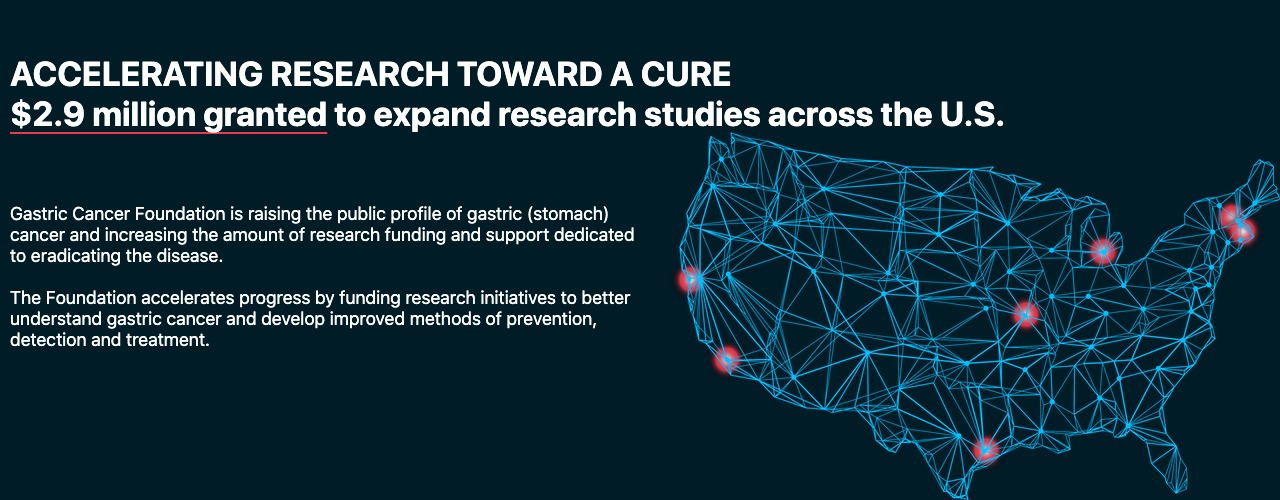

ACCELERATING RESEARCH TOWARD A CURE
$4.1 million granted to expand research studies across the U.S.
Gastric Cancer Foundation is raising the public profile of gastric (stomach) cancer and increasing the amount of research funding and support dedicated to eradicating the disease.
The Foundation accelerates progress by funding research initiatives to better understand gastric cancer and develop improved methods of prevention, detection and treatment.



















$4.1 million granted to expand research studies across the U.S.
ACCELERATING RESEARCH TOWARD A CURE





LEADING THE SEARCH FOR A CURE
GASTRIC CANCER REGISTRY
The Foundation established the first comprehensive HIPAA-compliant registry at Stanford University Medical Center to create a bridge between patients and researchers who are seeking greater understanding and more effective methods of prevention, diagnosis and treatment. Tumor, blood and saliva samples undergo whole genome sequencing and sophisticated analyses.
Patients and immediate family members who join the registry are important partners in the search for a cure.
DATA AVAILABLE TO ALL RESEARCHERS
The Genome Explorer web portal – a comprehensive database of clinical and genomic information – makes data available to researchers around the globe free of charge. The Gastric Cancer Registry is on track to become the single largest repository of patient information and genomic data for stomach cancer.
EARLY-STAGE RESEARCH FUNDING
Grants provide early funding for investigations that have the potential to open up new possibilities for patient treatments. This type of foundation funding – seed funding at the initial stage of study — is essential in order to generate preliminary data that can be the basis for subsequently applying for larger public grants.
RESEARCH SCHOLAR AWARDS
The Ben Feinstein Memorial Research Scholar Award in Gastric Cancer provides funding and support to enable outstanding young investigators to focus their work on gastric cancer. The Foundation joined with the American Gastroenterological Association (AGA) Foundation to jointly establish this permanently endowed award which provides three-year research grants of $100,000 per year.
FIND CLINICAL TRIALS
Clinical trials study the effectiveness of new medicines and treatments. Participation in a clinical trial can offer an additional treatment option to patients while making an important contribution to the field, helping doctors learn more about gastric cancer and how to prevent or treat it.
It can be overwhelming to understand all the studies that are underway and how they might match with your condition. Help is available.
Our free no-obligation clinical trial matching service helps patients navigate this complex landscape to find and match with appropriate clinical trials in their area. Skilled navigators provide individualized support that prepares patients to discuss clinical study possibilities with their medical care team.
LEARN MORE AND REQUEST ASSISTANCE
Speak with a trained navigator by calling 1-855-731-6032, weekdays 8am–6pm ET
Published Research
Gastric Cancer Foundation-supported research discoveries have been published in acclaimed journals.
Robert J. Huang, Ignacio A. Wichmann … Hanlee P. Ji. Npj Precision Oncology; 25 February 2025; Volume 9, P 1-13.
